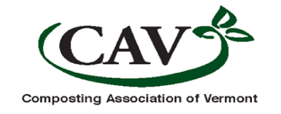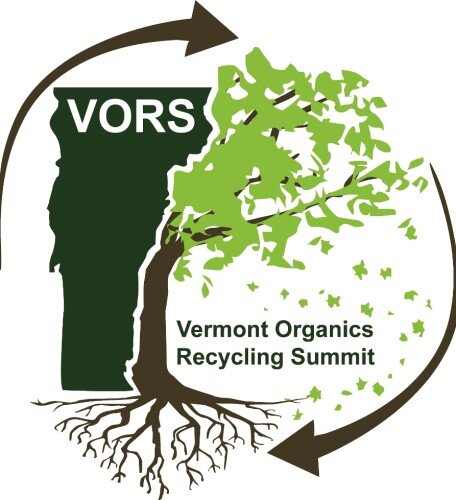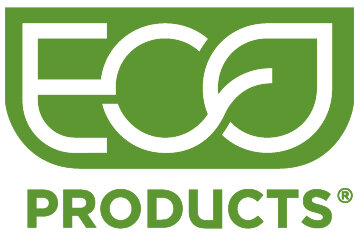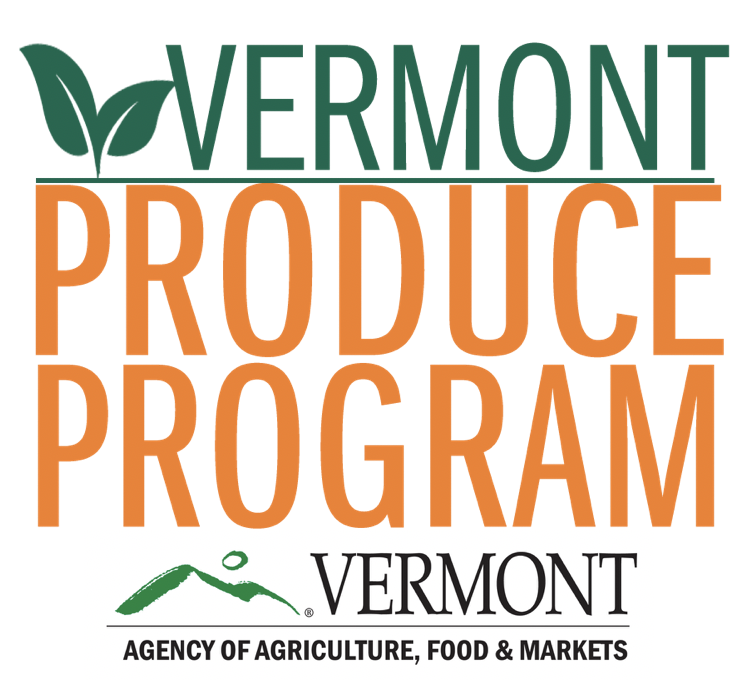16th Annual Vermont Organics Recycling Summit
2022 Theme: Recipe for Regeneration: Compost
May 2-6, 2022 (as part of International Compost Awareness Week)
The 2022 Vermont Organics Recycling Summit (VORS), held in conjunction with International Compost Awareness Week, will include a variety of virtual events (webinars, facilitated online discussion groups, etc.). This year, VORS will be celebrating the value of compost and organics recycling, and the many ways it supports regenerative agriculture, the health of the environment, the people and the economy. Session topics include on-farm composting, infrastructure, organics diversion, different technologies, inspiring the next generation, and more!
To supplement the virtual VORS experience, there are three small group, outdoor, in-person events scheduled! Any such events will be compliant with State and CDC COVID-19 guidelines at the time of the event.
Looking for USCC Professional Development Credit? Download this form & watch for session codes.
This year’s Keynote speaker is Finian Makepeace
Finian Makepeace is the Co-Founder, Policy Director & Lead Educator of Kiss the Ground. He is a renowned presenter, media creator, and thought leader in the field of regenerative agriculture and soil health. His dedication to Kiss the Ground’s mission of “awakening people to the possibilities of regeneration”, has motivated him to develop training programs, workshops, and talks designed to empower people around the world to become confident advocates for this growing movement.
VORS 2022 Program of Events
Monday May 2rd
-
from Josh Kelly, Solid Waste Program Manager at the Vermont Department of Environmental Conservation
-
-
Curious how composting can help reduce the impacts of climate change? Join panelists in a conversation about the relationship between greenhouse gas (GHG) emissions, carbon sequestration and compost use. Panelists will help quantify carbon sequestration and other climate-related benefits of composting. After an overview of current regenerative agriculture programs, the panel will provide an assessment and practical application of the Climate Action Reserve’s Soil Enrichment Protocol. This protocol uses compost soil amendments for the generation and marketing of Voluntary Emissions Credits. Panelists will investigate the strengths and gaps in the current protocol and look at how future research investments could offset credits through compost amendments for soil GHG emissions capture.
Panelists:
Sally Brown, University of Washington
Andrew Carpenter, Northern Tilth, LLC
Gordon Hilbun, One Earth Fund
Tuesday May 3rd
-
Throughout the Soil Builders program, we've been talking about the connections between compost, soil health, and water quality; different kinds of compost; and best management practices based on different applications. Now that we better understand the benefits, how do we get compost- and soil health-based projects off the ground? Join this session for a discussion about making healthy soil a priority in your community.
-
Waste diverters, soil enthusiasts, and green-minded citizens all share a desire for waste reduction, clean sorting streams and healthy soil. The sorting process can be confusing. The myriad of materials that we are expected to sort correctly can foster that emotion, making the process unclear, frustrating, and challenging to execute. While compostable packaging is intended to provide a solution, it can also add uncertainty for the end-user and the composter. Given that the compost packaging market is expected to increase 17% annually between 2020-2027 - what role could compostable serveware play in achieving the goals of stakeholders devoted to a clean sorting stream, reducing and diverting waste, and building healthy soil? Join experts from every facet of the compostable packaging subset to unpack the answer to this question as we explore the preconceptions and misconceptions of compostable packaging and cultivate a discussion towards collaborative solutions.
Panelists:
Toby Alves, ECO Products
Corey Berman, UVM Recycling & Zero Waste
Zach Cavacas, Music Mountain Compost
Ham Gillett, GUVSWMD; So. Windsor/Windham Counties SWMD
Trevor Mance, Casella Waste Systems, Inc.
Elly Ventura, Vegware
MODERATOR: Natasha Duarte, Composting Association of Vermont
-
The workshop will be held at Shelburne Farms Market Garden.
Jim Stiles has been experimenting with producing Johnson-Su compost at his home in St. Albans for about 6 years. Like most experimenters in cold climates, his previous efforts ran afoul of our cold climate, causing his reactors to freeze, which has proven to be highly problematic. A year ago last May he created his first micro-reactor (in a sleeved 5 gallon bucket) with the intention of avoiding the freezing problem by moving the reactor into his basement during the cold months. After a good summer, he created 6 more, slightly larger reactors (in 20 gallon fabric pots) using a favored Johnson-Su feedstock, shredded fall leaves. In early November, these were all moved into his basement, and will probably be moved outside again in April. Superficial examination suggests that results with the fabric pots are quite good, but progress with the original 5 gallon reactor is difficult to assess via superficial examination.
The workshop will involve emptying and examining the contents of the original reactor and one of the 6 newer reactors for a more thorough assessment. Participants who come to the site will be encouraged to conduct their own examinations and offer observations.
Wednesday May 4th
-
Achieving clean organics streams is challenging, especially when a ban pushes us to engage whole communities in separation. Getting individuals, businesses, and institutions to do a good job separating organics from non-compostable materials can be daunting. Often the collective narrative reflects the idea that effective source separation is impossible because people 'just won't learn' or 'just don't care.' And yet, there are great examples of successful, community-wide, long-term programs that achieve exceptionally high rates of separation. The key: recognize source separation as a change in behavior and support it as such. When source separation of organics is framed as simply following guidelines, without helping people understand the “why” behind it, we fail to acknowledge human psychology, how decision-making works in the brain, and the various cultural myths we need to resolve in order to successfully engage participants. However, haulers and composters who prioritize the human side of outreach and education, and build these into their programs as iterative processes, have achieved success! Join this panel to hear experiences from different haulers who believe in, and are committed to, clean streams of organics for producing quality compost, protecting soil and ecological health, and stopping climate change.
Panelists:
Tom Gilbert, Black Dirt Farm
Dan Israel, Compost Crew
-
Public and private organizations are often tasked with implementing programs and outreach campaigns to promote environmentally responsible behaviors. These programs are typically developed to address an identified problem or meet an adopted policy or mandate. Without exception, the success of these programs hinges on community participation. Achieving change in a designated outcome (e.g., organics diversion) requires behavior change on the part of individuals. Typically, outreach campaigns aim to promote behavior change by raising awareness and educating the community about the program and the problem it addresses. Although these information-based campaigns can positively increase knowledge attitudes about a specific behavior or problem, they are largely ineffective at creating lasting changes in behavior. In recent years, community-based social marketing (CBSM) has emerged as an effective approach for developing, implementing, and revitalizing environmental programs. Unlike traditional information-based campaigns, CBSM is an evidence-based process that leverages established psychological principles to remove barriers, increase motivation, and ultimately change behavior. The presentation will provide an overview of the steps of community-based social marketing along with illustrative case studies demonstrating its efficacy at fostering behavior change.
Presenter:
Jennifer Tabanico, Action Research
Lori Large, Action Research
-
From grants to crowdfunding to self-financing, there are a variety of methods – and hurdles to clear – when starting and growing your compost business. Hear about USCC’s recently released study of financing methods and case studies to learn about ways you may not have considered for your business.
Presenter:
Linda Norris-Waldt, US Composting Council
Thursday May 5th
-
What does it mean to pay farmers and other land stewards for ecosystem services like nutrient cycling, climate regulation, and pollination? Which services do we value, whom do we pay for them, and for how long? These are some of the questions Vermont's Soil Health & Payment for Ecosystem Services Working Group has been grappling with since 2019. With recommendations due to the legislature in January 2023, the Working Group will spend the remainder of this year developing a pilot program. Join us to get the latest, and bring your questions and suggestions to inform the outcomes!
Presenter:
Maddie Kempner, Northeast Organic Farming Association of Vermont
-
Under Act 41, the Agency of Agriculture regulates certain on-farm compost operations by setting standards for registration, management and design. Join this session for an overview of eligibility requirements and standards of operation, as well as insight into other policies that inform the regulation of these operations, including commercial feed and management of invasive pests.
Presenters:
Stephanie Smith, Vermont Agency of Agriculture Food & Markets
Emilie Inoue, Vermont Agency of Agriculture Food & Markets
-
Join us for an onsite tour of our Lamoille Soil Composting Facility, where all of the food scraps collected by the Lamoille Regional Solid Waste Management District (LRSWMD) are processed. Lamoille Soil, built on a long-dormant biosolids composting facility, opened to the public in 2017. In 2021, we processed 25,500 buckets (290 tons) of food scraps, preventing the equivalent of 25 metric carbon ton equivalents of CO2 from entering the atmosphere, and we sold 130 cubic yards of compost back to the community to improve our local soil. This tour will cover the end-to-end process at our site, including a discussion of challenges, successes, and lessons learned over our almost 5 years of operations.
Tour Hosts:
Susan Alexander, LRSWMD
James Gonyaw, LRSWMD
Sarah Lillibridge, LRSWMD
Friday May 6th
-
This session will explore different technologies used for organics management and the partnership opportunities for composters. We’ll start by considering depackaging technology, the methodology used for determining contamination potential, and explore the "chain of custody" for the depackaged materials - from bin to end-use. Following this, we’ll explore the opportunity for Vermont compost companies to partner with farms to use excess or used digested solids from farm digesters and the potential new revenue streams this offers both composter and farmer.
Corey Rossen, Ecoverse: “Clean Compost After Food Waste Separation & Depackaging”
Separation technology and equipment have made it possible to remove organic contents from its packaging for recycling/repurposing. This presentation will detail the ability to produce clean organics for compost through the separation of food (and other organic) waste from its packaging onsite at compost facilities, food manufacturing, retail, municipalities, standalone facilities, and transfer stations as a means to divert organic waste from landfills and repurpose/recycle the material. We’ll look at how this technology fits into the organic management process and present a "chain of custody" for the depackaged materials - from bin to end-use.
Jim Muir, Agricultural Digesters LLC and Brent LeHoullier, Agri-Cycle, “Partnering Vermont Farms and Compost Companies”
This presentation will explore the opportunity for Vermont compost companies to partner with farms to use excess or used digested solids from farm digesters. Ideally, this partnership will, in turn, result in more anaerobic digesters which capture and reduce greenhouse gases by converting them into renewable electricity, useful heat, and bedding. To support a fair and consistent price for farms and investors, Agricultural Digesters LLC is applying for a significant working grant from VAPG to reduce the cost of transportation which is a major factor in composting profitability. This will provide a lower-risk way to explore these partnerships that will build new revenue streams for both composter and farmer.
-
This session will guide educators through integrating composting, food waste reduction, water management and soil health into school curricula. We will review a semester of simple lessons and activities that can be modified to fit any group!
Presenters:
Cat Buxton, Grow More, Waste Less
Julia Parker-Dickerson, Smilie Memorial School
Special thanks to:
Thanks to our sponsors!!
Learn what the Produce Safety Rule means for your business.

















